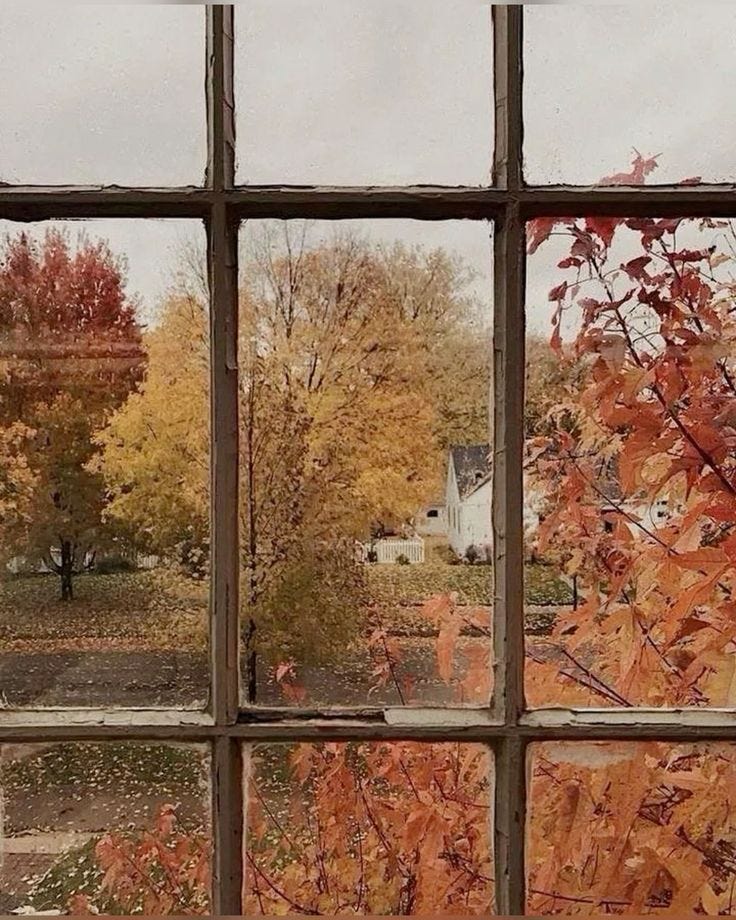ten books you should read this early autumn
postcard 23: on books you should read during the season of the early autumn chill
Life starts all over again when it gets crisp in the fall.
[This post gets cut off on the email, so read it in the app or on your desktop <3]
Transitions between seasons are more exciting and special to me than the seasons itself, and my favorite is the transition from late summer to early autumn. Not much is different, and the weather isn’t either, but there’s this very slight change in feeling and the quiet mornings that make it such a good time to read more atmospheric books.
The very obvious fall reads will be in my reading guide next week (I’m talking The Secret History, The Picture of Dorian Gray, etc). I define the books on this list as more in-between. They are atmospheric, almost summery but a bit colder and a bit more melancholic.
This was supposed to be a paid post but I’ve made it free in hopes that this inspires someone to read or find a book that they end up loving! I think early September is the best time to read as much as you can. I’ve linked the Goodreads link and attached a synopsis for convenience.
In The Dream House by Carmen Maria Machado
For years Carmen Maria Machado has struggled to articulate her experiences in an abusive same-sex relationship. In this extraordinarily candid and radically inventive memoir, Machado tackles a dark and difficult subject with wit, inventiveness, and an inquiring spirit as she uses a series of narrative tropes—including classic horror themes—to create an entirely unique piece of work that is destined to become an instant classic.
This is unlike anything I have ever, ever read before. Beautiful, raw, haunting, and innovative. The memoir is written in a way that seems like a manifestation of real memories—fragmented, dreamlike, hazy vignettes that are not quite poems or lyrics or prose, but somewhere in between.
While it is not straightforward like a conventional memoir, Machado writes with devastating vulnerability and a propulsive cadence that makes this book impossible to put down despite the heaviness of the subject. In The Dream House reads like a folklore or fairytale anthology; like the actual process of building a house, each of Machado's kaleidoscopic chapters amounts to a complete account of an intimate history of her life and her relationship with her former partner. This memoir is absolutely perfect. Like one of the chapter titles, this book is an unexpected kindness.





